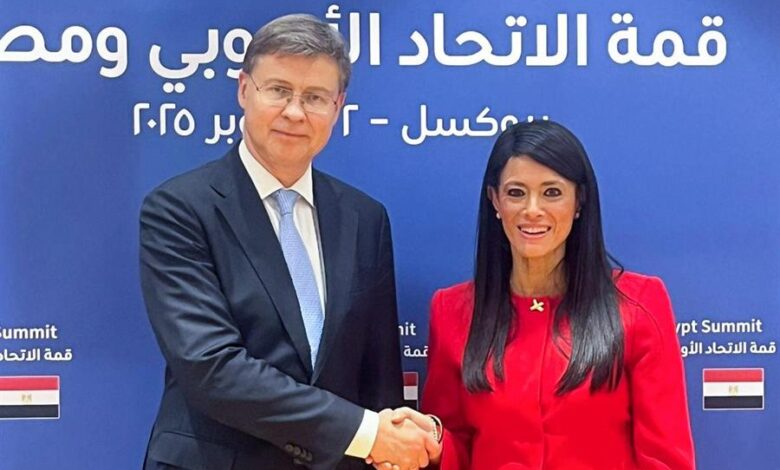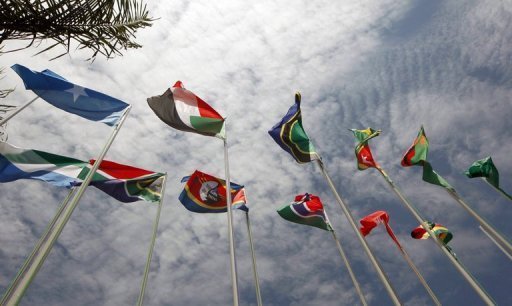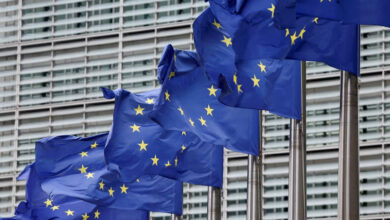
The Egyptian Ministry of Planning, Economic Development and International Cooperation on Monday received two European Commission missions to conduct expanded discussions on structural reforms and ongoing development grant projects.
This follows the signing of the agreement for the second phase of the Macro-Financial Assistance and Budget Support mechanism during the Egyptian-European Summit in Brussels, chaired by Egyptian President Abdel Fattah al-Sisi, and President of the European Commission Ursula von der Leyen.
The reception comes as part of the continuous follow-up of implementing the economic pillar of the Strategic Partnership Agreement between Egypt and the European Union.
Meetings with DG NEAR
The ministry, with the participation of national authorities, is holding meetings with a mission from the European Commission’s Directorate-General for Neighborhood and Enlargement Negotiations (DG NEAR – Middle East and North Africa) from November 9-13.
This comes as part of the cooperation between Egypt and the EU during 2026-2027 to discuss the priorities for allocating the development grants, worth €600 million, within the Comprehensive Strategic Partnership between the two sides.
A financing agreement for the program “EU Support for the Implementation of Social and Economic Reforms at the Local Level” was signed, valued at €75 million, under the Neighborhood, Development and International Cooperation Instrument (NDICI – Global Europe).
In addition, financial support from the EU was announced for 2025 to promote sustainable development, enhance economic governance, support vocational and technical training and enhance the skills needed for future jobs, valued at €110.5 million.
Egypt eager to implement strategic partnership
Minister of Planning, Economic Development and International Cooperation Rania al-Mashat reaffirmed the ministry’s keenness to follow up on the implementation of the Strategic Partnership between Egypt and the European Union.
She highlighted the great importance of this partnership for both sides in achieving mutual interests on various levels.
Mashat noted that this partnership supports the state’s efforts to continue the path of economic reform and enhance economic resilience in the face of external fluctuations.
She noted that the Macro-Financial Assistance and Budget Support mechanism is part of a broader partnership between Egypt and the European Union based on trade and investment relations and supporting macroeconomic resilience.
Mashat mentioned that the second phase, worth four billion euros, followed continuous coordination between various national authorities on one hand and the European Commission on the other throughout the current year, to determine the proposed structural reform matrix, which includes 87 reforms within the National Structural Reform Program.
From November 10-12, a high-level mission from the European Commission’s Directorate-General for Economic and Financial Affairs will be holding technical meetings with relevant authorities to discuss the procedures for the first tranche of the second phase of the Macro-Financial Assistance and Budget Support mechanism, worth one billion euros.
Edited translation from Al-Masry Al-Youm




